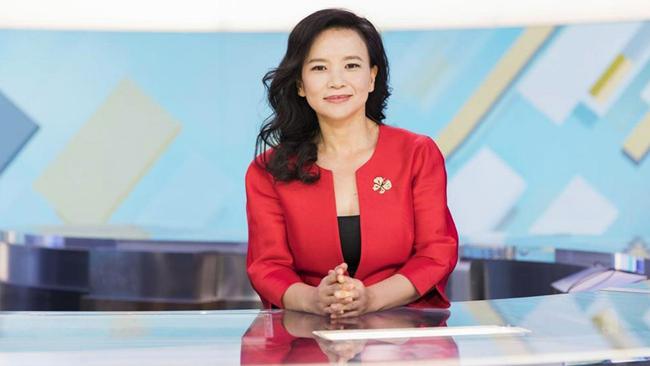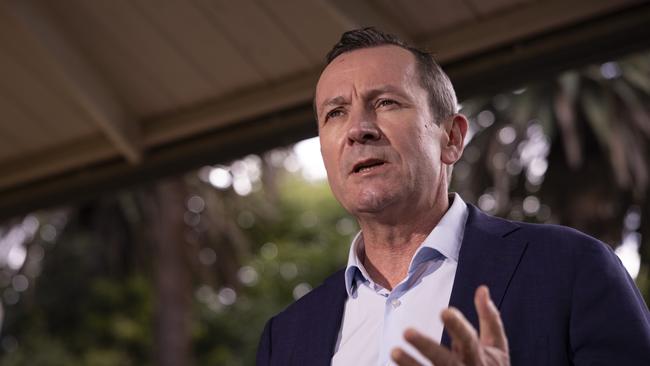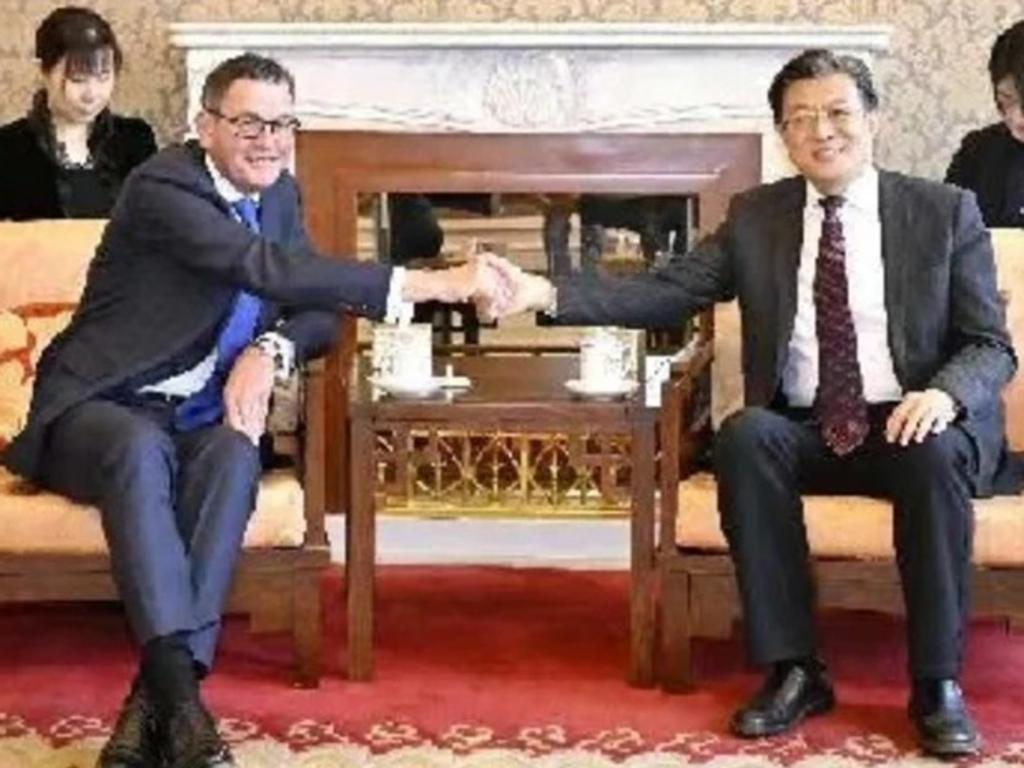WA Premier Mark McGowan will not raise imprisonment of journalist Cheng Lei on China trip
Premier Mark McGowan is the second state leader to decline to mention the long-running imprisonment of an Australian-Chinese journalist when he visits China this week.

The partner of detained Chinese-Australian journalist Cheng Lei has criticised West Australian premier Mark McGowan after learning the Labor leader will refuse to raise her plight as part of his trip to China this week.
The WA leader will arrive in China on Monday to spend five days in high-level meetings with key government and industry leaders, and his trip comes just weeks after Victorian Premier Daniel Andrews conducted a similar tour, where he also chose not to raise the issue. Nick Coyle, the partner of Cheng, told The Australian of his disappointment that Mr McGowan would not make any mention of his partner’s imprisonment, which has left her housed in a Beijing jail since August 2020.
He contacted the Premier’s office about the matter but received no response.
“It’s obviously disappointing the Premier has decided not to advocate for Lei on his trip to China and that his office has refused the genuine offer to discuss the issue,” My Coyle said.
“It is certainly puzzling that this is the second Labor premier heading to China in recent weeks, with clear reasons to raise, carefully and in consultation with the federal government, a case that rightfully concerns all Australians.”
A WA government spokesman told The Australian: “The Premier will not raise specific foreign policy matters as they are the responsibility of the federal government.”
Foreign Minister Penny Wong recently said Cheng had been waiting more than 12 months for an outcome to her trial and she shared “deep concerns” over the “ongoing delays”.
“The Australian government has advocated at every opportunity for Ms Cheng to be reunited with her family,” she said.
Cheng, 47, was charged with providing state secrets to foreign organisations and has been waiting for a verdict on her case, which has been repeatedly delayed.

Cheng’s father is a long-time Perth resident and Mr Coyle, who lives in Port Moresby, said it was hard to fathom why the Premier would ignore in assisting her fight for freedom.
“Key members of the Australian business community, who know and understand China, have shown more willingness to point out the obvious than the Premier of Victoria, home to Lei and her kids, as well as the Premier of WA, where her father resides,” Mr Coyle said.
“Of course primary responsibility lies with the federal government, but with Lei’s close ties to WA, there is no reason why the Premier cannot express the quite reasonable view that she ought to be able to speak to her kids and parents, one of whom is a long-time Perth resident.”
Cheng was born in China and migrated to Australia as a child. She went on to complete her primary, secondary and university studies in Melbourne.
Cheng’s two children, aged 11 and 13, live in Melbourne with her mother and have not seen or spoken to her since her detainment.
She was arrested in Beijing by the Chinese Ministry of State Security in 2020. Prior to that she had worked as a journalist in Asia for about 20 years, including at CNBC in Singapore, before she moved to the state-run English-language channel (China Global Television Network) in Beijing.
Cheng was last visited by Australian consular officials on March 22.
Mr Coyle said there had been “genuine efforts” from Chinese ambassador Xiao Qian and he could not fathom why state premiers had not pursued the issue.
Mr Coyle, who is not the father of Cheng’s children, was the head of the China-Australia Chamber of Commerce before stepping down last year and said there would be no harm in mentioning his partner’s detainment.
“As someone who is more familiar with protocol in China than most, there is certainly nothing inappropriate in raising concern over such consular cases, particularly when direct family are constituents,” he said. “This can and should be raised in the context of wishing to see bilateral relations improve from their recent lows.
“No government in Australia, federal or state, can bring their constituents with them on the journey of full normalisation of relations with China, which both countries and their people want to see, while the status quo with regard to Lei exists.”




